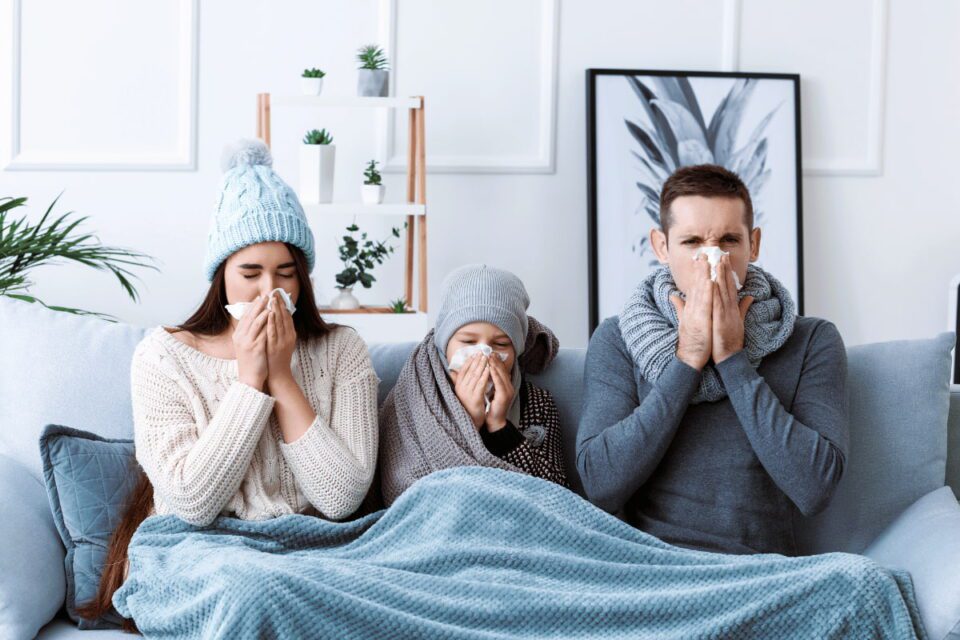In the fast-paced and demanding lifestyle of our times, many of us tend to overlook the significance of a restful and rejuvenating night’s sleep. However, what we may not realize is that the quality of our sleep is paramount in supporting our immune system. The immune system is our body’s natural defense mechanism that protects us against illnesses and diseases.
In this article, we will explore the fascinating and intricate link between sleep and immune system function, unraveling the reasons behind our immune system’s signals to sleep, the far-reaching consequences of sleep deprivation on our overall health and well-being, and the comparative importance of sleep, exercise, and diet in strengthening and bolstering our immune defenses. By understanding this complex relationship, we can prioritize our sleep and take the necessary steps to nurture and safeguard our immune system, which will lead to a healthier, happier, and more fulfilling life.
Table of Contents
The Link Between Sleep and Immunity
Have you ever wondered why, when we’re unwell, our body seems to crave more sleep? The answer lies in the intricate relationship between the immune system and our sleep patterns. Scientific studies have revealed that during sleep, our immune system becomes hyperactive, releasing proteins called cytokines. These proteins are crucial in promoting sleep, as they play a pivotal role in regulating inflammation and immune responses.
Sleep, the unsung hero of Immune resIlIence, quIetly empowers our body’s defenses, turnIng rest Into the ultImate shIeld agaInst Illness
One such key player is interleukin-1 (IL-1), a cytokine responsible for inducing sleep and fever during infections. The elevation of IL-1 during infections is a testament to the body’s strategic response to combat pathogens. Therefore, a good night’s sleep is not merely restorative but actively contributes to the body’s defense against infections.
The Toll of Sleep Deprivation on Immune Function
Conversely, the consequences of sleep deprivation on immune function can be profound. Studies have consistently demonstrated that insufficient sleep weakens the immune system, making individuals more susceptible to infections. Chronic sleep deprivation can reduce the production of cytokines, impair the activity of immune cells, and compromise the effectiveness of vaccines.

Moreover, prolonged lack of sleep can lead to an increase in stress hormones like cortisol, which further hampers the immune response. So, it’s not just about feeling fatigued; it’s about leaving your body vulnerable to the ever-present threats in our environment. Because not getting enough sleep for a long time can be like constantly putting your body under stress.
This chronic lack of sleep affects the immune system and overall health. It increases the risk of different diseases because it keeps the body in a state of mild inflammation and makes the immune system weaker. This makes it easier to get sick, and the body doesn’t respond as well to vaccines. So, getting enough sleep is crucial for staying healthy and keeping your immune system strong.
Quality Sleep: A Pillar of Overall Health
While we often hear about the trifecta of health – sleep, exercise, and diet – determining which takes precedence can be challenging. When it comes to supporting the immune system, the consensus among experts is clear: quality sleep is a non-negotiable cornerstone.
A restful nIght Isn’t just a break from the day; It’s a strategIc allIance between sleep and the Immune system, fortIfyIng the body’s defenses
Exercise undoubtedly offers countless health benefits, including improved cardiovascular health and mood regulation. A balanced diet, rich in nutrients, is essential for overall well-being. However, without sufficient and restorative sleep, the body’s ability to reap the full rewards of exercise and nutrition is compromised.

Research indicates that individuals who consistently get quality sleep are more likely to maintain a healthy weight, have better metabolic function, and experience fewer chronic health issues. In essence, sleep acts as the glue that binds the benefits of a nutritious diet and regular exercise into a robust defense against diseases.
Practical Tips for Enhancing Sleep Quality
Now that we understand the crucial role of sleep in immune function, let’s explore some practical tips to enhance sleep quality:
- Establish a Consistent Sleep Schedule: Aim for a regular sleep-wake cycle, even on weekends. This helps regulate your body’s internal clock.
- Create a Relaxing Bedtime Routine: Engage in calming activities before bedtime, such as reading a book or practicing relaxation techniques. This signals to your body that it’s time to wind down.
- Optimize Your Sleep Environment: Ensure your bedroom is conducive to sleep by keeping it cool, dark, and quiet. Invest in a comfortable mattress and pillows for optimal support.
- Limit Screen Time Before Bed: The blue light emitted by electronic devices can interfere with the production of the sleep hormone melatonin. Aim to power down at least an hour before bedtime.
- Watch Your Diet: Avoid heavy meals and caffeine close to bedtime. Opt for sleep-inducing snacks like a small serving of nuts or a banana.
For further insights and a deeper exploration of this topic, check out our related article at [How To Sleep Better: A Guide to a Better Version of You].
Conclusion: Prioritize Sleep for a Healthier Tomorrow
In the pursuit of a healthier lifestyle, it’s evident that sleep is not a luxury but a necessity. The close relationship between sleep and immune system function underscores the profound impact that a good night’s rest can have on our overall well-being.
Sleep, the sIlent archItect of well-beIng, fortIfIes our Immune system, buIldIng an Impenetrable fortress around the body’s defenses
As you try to make good health choices, remember that prioritizing quality sleep sets the stage for a resilient immune system, optimal physical performance, and mental well-being. It’s time to embrace the power of sleep as an essential part of a healthier tomorrow.

